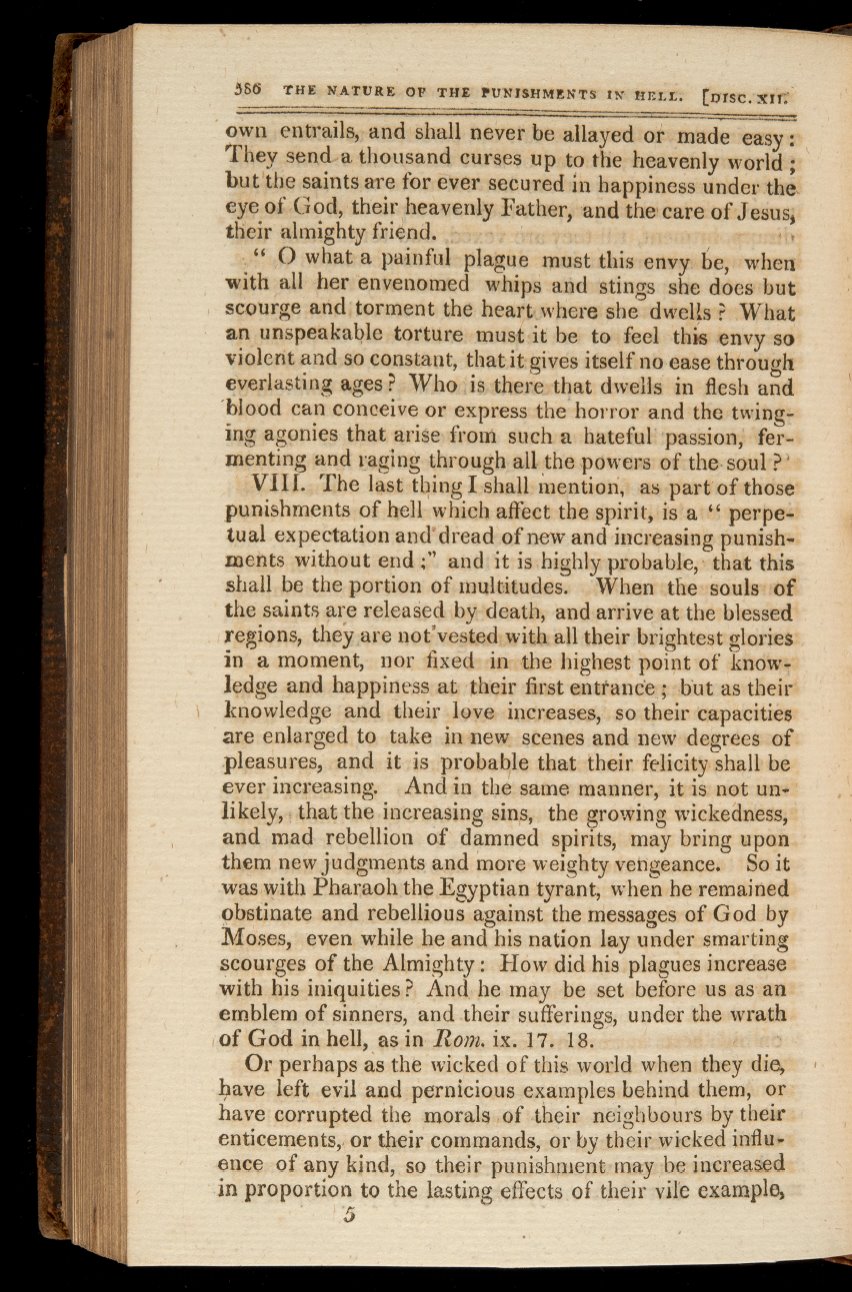

566
THE NATURE
OF
THE PUNISHMENTS
IN
HELL. [DISC.
XII.
own
entrails, and
shall never
be
allayed or made
easy
:
They
send a
thousand
curses up
to the heavenly world
;
but
the saints
are
for ever secured
in
happiness under
the,
eye
of
God,
their
heavenly
Father, and
the
care
of
Jesus,
their
almighty friend.
"
O what a
painful
plague
must
this envy
be, when
with
all
her
envenomed
whips
and stings
she does
but
scourge
and torment
the
heart
where
she dwells
?
What
an unspeakable
torture
must
it
be
to
feel
this envy
so
violent and
so
constant,
that it
gives
itself
no ease
through
everlasting
ages
?
Who
is
there
that
dwells in
flesh
and
"blood
can conceive or express the
horror
and
the twing-
ing agonies
that
arise from such
a
hateful
passion,
fer-
menting and raging through
all
the
powers
of
the soul
?'
VIII.
The
last thing
I
shall Mention, as
part
of
those
punishments
of
hell which affect
the
spirit,
is
a
"
perpe-
tual expectation
and dread
of
new
and increasing punish-
ments without end
;"
and
it
is
highly
probable, that
this
shall
be
the
portion
of
multitudes. When the
souls
of
the saints are released
by
death, and arrive
at
the blessed
regions, they
are not
°vested
with all
their
brightest
glories
in
a
moment,
nor
fixed in
the
highest
point of
know-
ledge and happiness
at
their
first
entrance
;
but
as
their
knowledge and
their
love increases,
so
their
capacities
are enlarged
to
take
in
new scenes
and
new
degrees
of
pleasures, and
it
is
probable that their
felicity
shall
be
ever
increasing.
And
in
the same
manner,
it
is
not
un-
likely,
that
the increasing
sins,
the growing
wickedness,
and
mad
rebellion
of
damned
spirits, may
bring upon
them
new
judgments and
more weighty
vengeance.
So
it
was with
Pharaoh
the
Egyptian tyrant,
when
he
remained
obstinate and rebellious against
the
messages
of
God
by
Moses, even
while he
and
his
nation
lay
under
smarting
scourges
of
the Almighty
:
How
did
his
plagues
increase
with
his
iniquities
?
And.
he may be set before us as
an
emblem
of
sinners,
and their
sufferings,
under
the
wrath
of
God
in hell, as
in
Rom. ix.
17. 18.
Or
perhaps
as
the
wicked
of
this world when they
die,
have left
evil
and pernicious
examples behind
them,
or
have
corrupted
the morals
of
their neighbours
by
their
enticements,,
or
their
commands, or
by
their
wicked influ-
ence
of
any kind,
so
their
punishment
may
be
increased
in
proportion
to the
lasting
effects
of
their
vile
example,
5

















